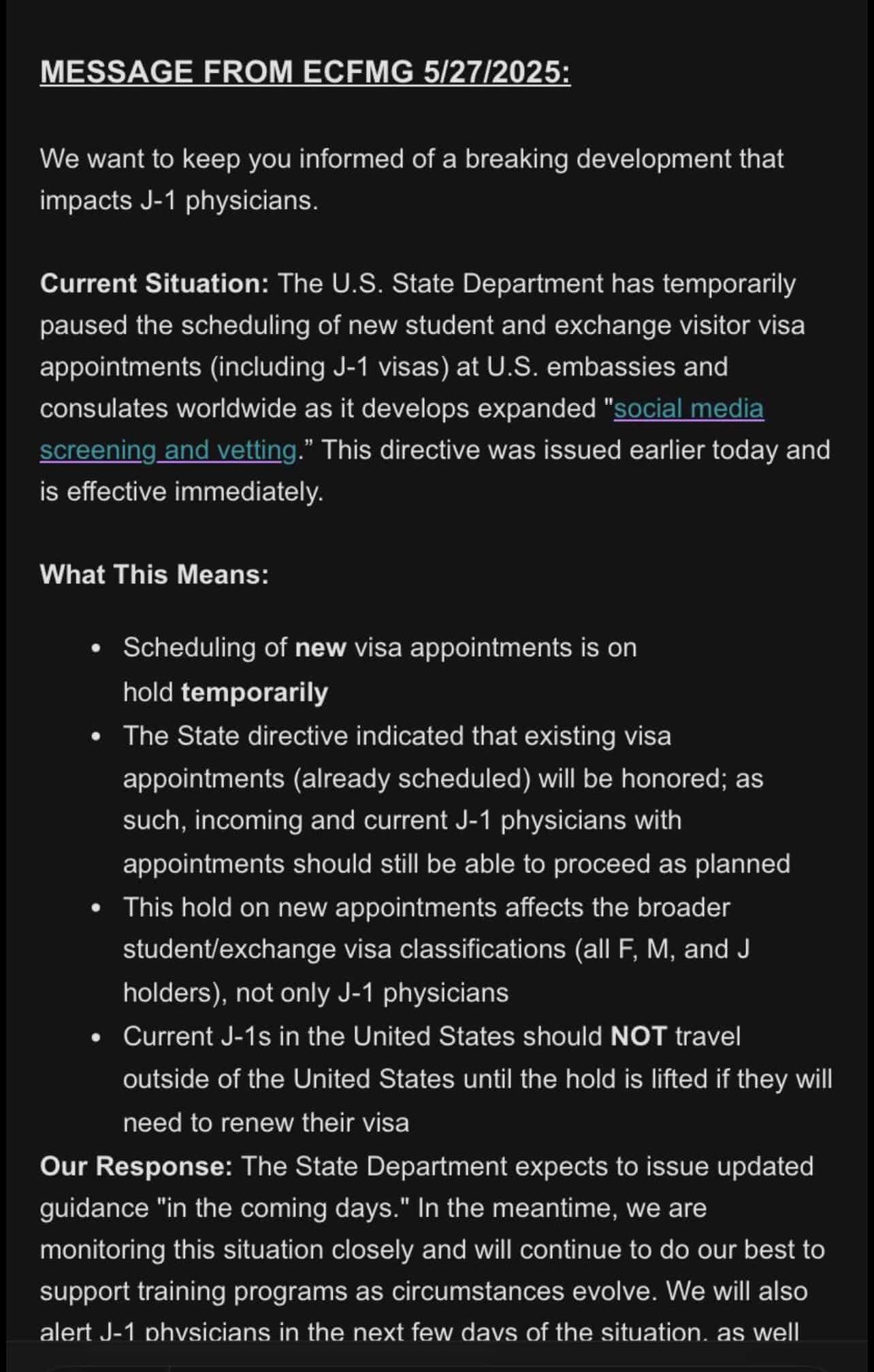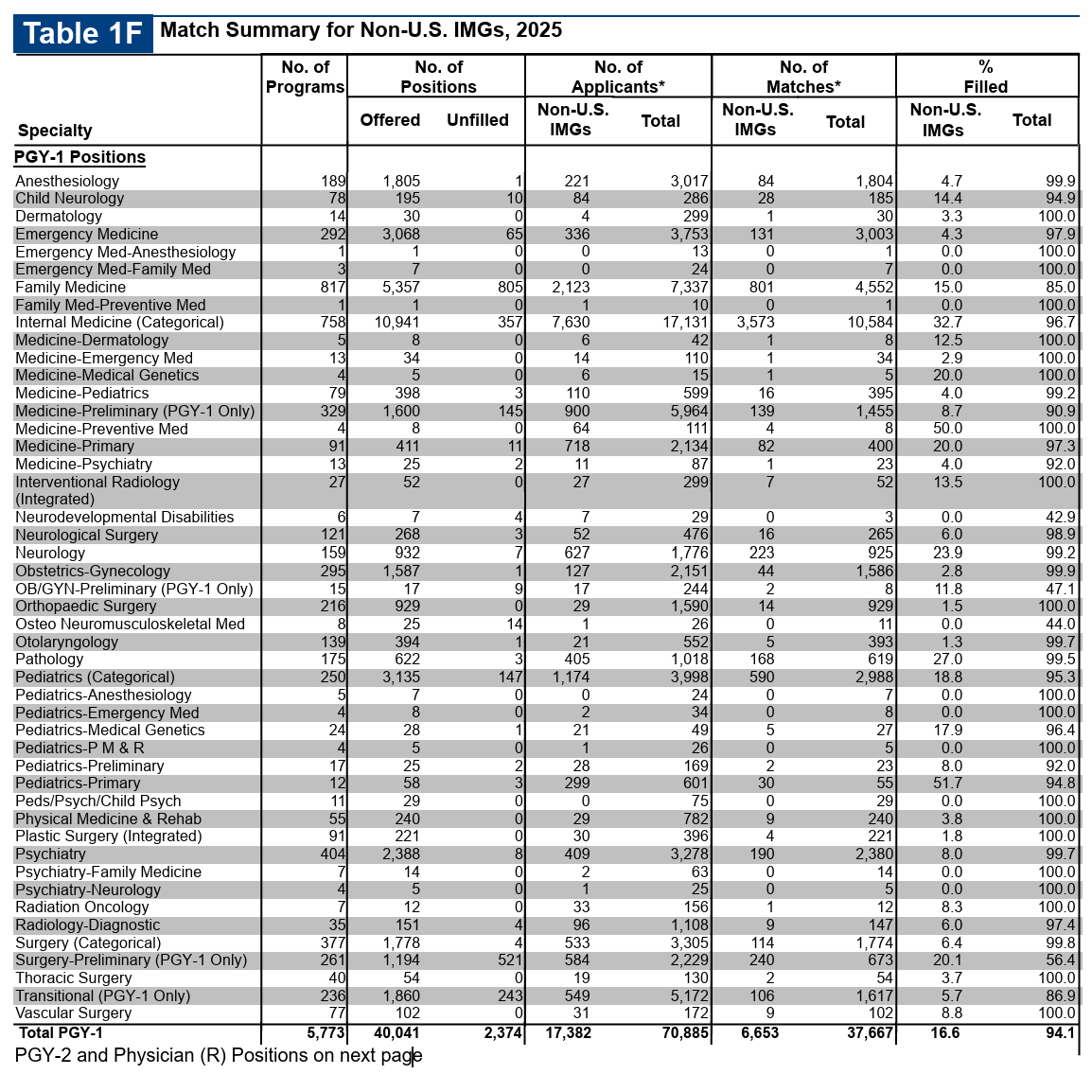A Critical Pause: How the J-1 Visa Interview Suspension Threatens U.S. Healthcare in 2025
Seeking healthcare in July may become even more difficult
In a move that has sent ripples through the international academic and medical communities, the Trump administration has ordered U.S. embassies worldwide to halt the scheduling of new visa interviews for foreign students and exchange visitors, including those applying for J-1 visas. This decision, aimed at expanding social media vetting of applicants, poses significant challenges for international medical graduates (IMGs) set to begin residency programs in July 2025.

The J-1 Visa: A Pillar of U.S. Medical Training
After students graduate medical schools, in order to become a specialized doctor and practice in the United States, one must finish a residency training program that lasts at least 3 years. These training program spots are not only filled by American medical students, but by IMGs as well.
The J-1 visa program has long been a cornerstone in the training of foreign medical professionals in the United States. Each year, thousands of IMGs enter U.S. residency programs under this visa category, filling essential roles in hospitals and clinics nationwide. These physicians often serve in underserved areas, providing critical healthcare services where they are most needed. This year, there are almost 7,000 IMGs matched into first year residency training positions.

Implications of the Suspension
The immediate effect of the suspension is a bottleneck in the visa application process. While applicants with already scheduled interviews may potentially proceed, new applicants are left in limbo, uncertain about their ability to commence residency programs as planned. Given that residency programs typically start on July 1st, the timing of this suspension could not be more disruptive.
It is unclear what will happen. However, delays in visa processing may lead to staffing shortages in hospitals, particularly in rural and underserved areas that rely heavily on IMGs. This could strain healthcare systems already stretched thin, potentially impacting patient care and outcomes.
Broader Consequences for U.S. Healthcare
Beyond immediate staffing concerns, the suspension may have long-term repercussions for the U.S. healthcare system. The uncertainty surrounding visa policies could deter future IMGs from applying to U.S. residency programs, leading to a decrease in the diversity and talent within the medical workforce. Furthermore, the added scrutiny and potential for visa denials based on social media activity raise concerns about privacy and the criteria used to assess applicants.
Navigating the Uncertainty
Medical institutions and residency programs must proactively address these challenges by exploring alternative staffing solutions and advocating for clear, fair, and efficient visa policies. Engaging with policymakers to highlight the essential role of IMGs in the healthcare system is crucial. Additionally, providing support and guidance to affected applicants can help mitigate the impact of the suspension on their professional trajectories.
Bottom Line
The suspension of new J-1 visa interviews represents a significant hurdle for IMGs and the U.S. healthcare system at large. We talk about how going to a hospital in July is a tough time because incoming residents start in the hospital, but this year, it could be potentially worse.
Although not required, any support is greatly appreciated.





I will not stop saying this:
1. People are going to die.
2. No one is coming.
3. We are saving our own lives.
They. Don't. Care. Not one bit! 🤬
I hire physicists and the majority of them first come here as postdocs on J-1 visas. This will kill our program, which is exactly what this shitbag administration wants. They abhor anyone smarter than them, which is pretty much everyone but their base.